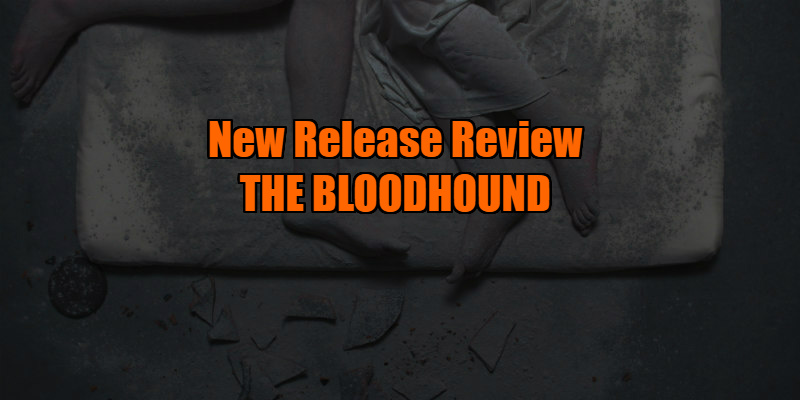
Review by
Eric Hillis
Directed by: Patrick Picard
Starring: Liam Aiken, Joe Adler, Annalise Basso, McNally
Sagal

When Edgar G. Ulmer made his considerably loose 1934 adaptation of
Edgar Allen Poe's
The Black Cat, he defied convention by setting it not in some creaky old cobweb infested
castle, but in a very modernist mansion. For his similarly loose take on
Poe's 'The Fall of the House of Usher', first time writer/director
Patrick Picard has followed Ulmer's lead, with his drama playing out
in a home from the Frank Lloyd Wright school. This gives it a similar
aesthetic to recent modern updates on the old "crazy reclusive man in a
castle" trope, such as
Ex Machina
and
Elizabeth Harvest.

As in Poe's story, a young man receives a letter from a sickly old friend
who lives a reclusive life with his similarly unwell sister in their
sprawling family home. Here it's Francis (Liam Aiken) who winds up at
the plush home of JP (Joe Adler) and his sister Vivian (Annalise Basso). JP appears to be suffering from some variant of consumption, and has
lost the will to leave the house, while Vivian's condition is so bad that
she refuses to leave her bedroom. Or at least, that's how JP tells it, as
Francis never actually sets his eyes on Vivian, though he does hear her
making noises (or is it something else?).
At night, Francis is plagued by strange experiences, including the visit of
a creepy girl in the shadows of his room, and a hooded figure who crawls out
of a wardrobe. JP passes these incidents off as nightmares, and Francis is
oddly passive in accepting such reasoning.

There's a unique dynamic at play between Francis and JP, one that requires
much suspension of disbelief on the part of the viewer. JP is clearly mad,
but Francis never seems particularly bothered by his increasingly odd
behaviour, which reaches a peak with an assault on a pizza delivery boy. At
one point JP locks Francis in the basement after sending him down to fetch
some champagne. For most of us, this would be the point where we call a cab
and get the hell out of there, but Francis brushes it off as the two young
men continue their passive aggressive relationship, both suspicious of one
another's intentions but unwilling to betray their thoughts.
With cinematographer Jake Magee and art director Mara Certic,
Picard has created a visually striking feature debut with some beautifully
composed images. It's the very definition of a film for niche tastes, but
even if it's not for you, Picard is to be applauded for committing so
rigidly to his vision. The purposely stilted performances of Aiken and Adler
echo those found in the films of Yorgos Lanthimos, and their illusory acting
styles will likely prove the greatest test for whether or not viewers reach
for the remote in search of more conventional fare.

In its most blackly comic moments - such as a wrestling bout between
Francis and JP while zipped into sleeping bags -
The Bloodhound resembles an absurdist chamber piece along the
lines of Philip Haas's The Music of Chance. It's essentially a two-hander, and if you can't get on the quirky
wavelength surfed by its stark storytelling, you may find it a bit of a
patience tester. I managed to stay on board out of curiosity value more than
anything else, and the film does have a rewardingly bleak coda that makes it
worth sticking with. But like the barely furnished, modernist home it plays
out in, The Bloodhound is a film that could use an injection
of warmth and life.


